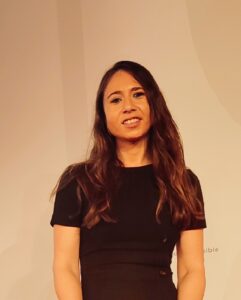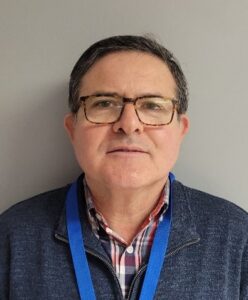The Andalusian Health Service- SAS (www.juntadeandalucia.es/servicioandaluzdesalud), is an autonomous public entity responsible for health care provision in Andalusia since 1986. As part of the Ministry of Health of the Government of Andalusia, its main purpose is to provide high-quality public health care to the citizens of the region, ensuring its accessibility and the satisfaction of its users, and seeking efficiency and optimum use of resources.
Located in the South of Spain, Andalusia is one of the largest regions in Europe, with 8.4 million inhabitants. Healthcare services are provided by SAS through a network of integrated healthcare facilities organized to ensure the accessibility of the population: 1,512 primary care centres, 49 hospitals, 15 Health Management areas and more than 104,000 employees distributed throughout Andalusia.
For EUCAIM project, SAS mobilises researchers from the Virgen del Rocio University Hospital (VRUH), which is one reference healthcare provider and one of the largest hospitals in Spain. With more than 8,000 professionals, 54 operating rooms, 1.291 beds and more than 450 spaces for clinical consultations, it is the largest healthcare complex in Andalusia. The Radiagnostic Unit and the Nuclear Medicine Unit will participate in the clinical part and the Technological Innovation Unit in the technical part.
The Radiagnostic Unit performs diagnostic and interventional tests based on imaging, thus providing support to other units and services in the hospital area. It is composed of more than 300 professionals of all categories such as radiologists, nurses, TER, orderlies and administrative staff, with the aim of providing adequate care to our patients. It has resources in the different buildings that make up the hospital city and in the peripheral centers, including conventional radiology equipment, remote controls, ultrasound, CT, mammography, MRI, stereotactic equipment, orthopantomographs and vascular and interventional radiology equipment. It is organized in specific areas of knowledge, by “organ-systems”, which allows radiologists to specialize and favors communication and coordination with the different specialties. The Unit also participates in clinical trials and other research work
The Technological Innovation Unit, integrated in the R&D&I management department of the VRUH, has a vast experience in Clinical Informatics and Health Research Informatics projects. This group is composed of different specialties in biomedical informatics domain, it works in the development and leadership of national and international R&D&I projects related to the development of new methods and knowledge on semantic interoperability in the EHR environment, FAIR data for Health Research, Learning healthcare Systems (LHS), Ethical and Legal Issues on Health Research and their application both in healthcare and health research.
Role of institution in the project
The SAS team participates in WP5 (T5.1, T5.2.1, T5.2.2, T5.3.5, T5.6) bringing its expertise in clinical data standardization, interoperability and application of FAIR principles, based on its knowledge gained as coordinator of the FAIR4Health project (https://www.fair4health.eu/), WP leader of the HealthyCloud project (https://healthycloud. eu/), co-leader of the WP IMPaCT Data (Spanish Data Infrastructure for Precision Medicine Research, https://impact-data.bsc.es/) and its experience in the Research Data Alliance FAIR Data Maturity Model; and in WP7 (T7.1a, T7.1b, T7.3 ) providing the experience of expert radiologists and its knowledge of having participated in the PRIMAGE project.




